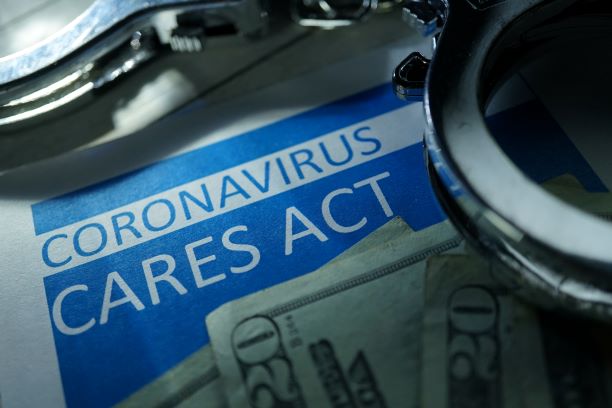Don’t Let Scammers Get Your Stimulus Check

As part of the Coronavirus Aid, Relief and Economic Security (CARES) Act, the federal government is sending out $290 billion in stimulus checks over the next half a year. Unfortunately, scammers are doing all they can to get their hands on these checks. To help you keep your check safe from scammers, Ideal CU has compiled the following guide on the stimulus check process and connected scams.
Important information about the stimulus checks
You do not need to take any action to receive your stimulus check. There is no form to fill out, no number to call and no information that must be shared. Every eligible citizen should receive the check without having to take any action. The feds are using the most recent tax filing information they have from each eligible citizen to send out the checks. Social Security recipients and anyone else who is not required to file taxes do not need to take action either.
When you may need to take action
The only exception to the above rule applies to those who have still not filed taxes for 2018. These citizens may need to submit a simple tax return to receive their check. Also, the government has shared that it can only deposit the money directly into checking accounts if it has this information on file for the recipient. Individuals receiving their checks via direct deposit will likely have their money sooner. Consequently, many people want to share this information with the IRS before the checks are sent out. You can do so via this link.
How the scams play out
The scammers trying to nab stimulus checks count on victims thinking they need to take action to get their checks. They use a variety of means, including phone calls, emails, text messages and social media posts, to ask victims to share information that will allegedly enable them to send their checks. They may ask for the victim’s Social Security number, date of birth, PayPal account information, checking account details, home address or other personal information. They claim it is a necessary “sign up” step in the stimulus check distribution; however, once they have this information, they will reach out to the IRS to change your information so the check goes directly into their own accounts. Or, they may try to hack your account and withdraw the stimulus money as soon as it arrives.
If you receive any phone calls or messages asking for your personal information so you can receive your check, you are looking at a scam. Do not respond. Report the scam to the FTC at ftc.gov. The federal government has made it clear that it will not be reaching out to citizens asking for information before sending out the checks.
Stay safe!
When you subscribe to the blog, we will send you an e-mail when there are new updates on the site so you wouldn't miss them.
